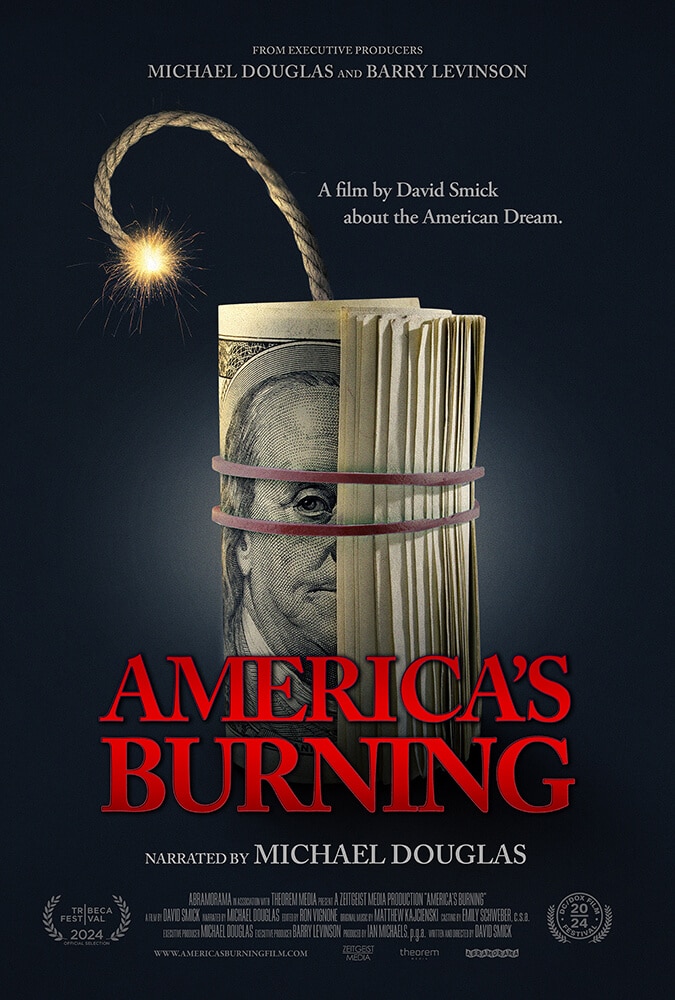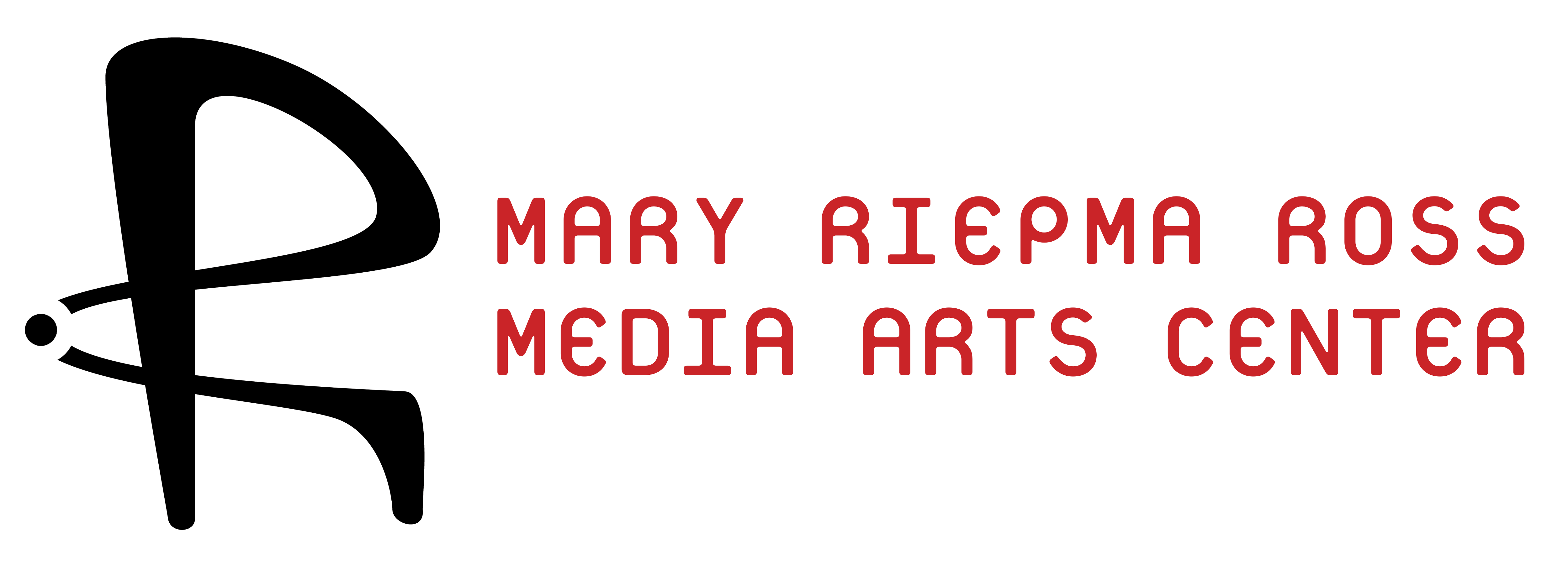
AMERICA’S BURNING
From Executive Producers Michael Douglas and Barry Levinson, America’s Burning draws on an amazing collection of thinkers and strategists to explore our country’s divisive political climate, the shrinking middle class, and the struggle for the American Dream.
SHOWTIMES
SEPT 13 | FRI
5:10, 7:10 p.m.
CLOSED DUE TO HOMEGAME
NO SCREENINGS
SEP 15 | SUN
5:10, 7:10 p.m.
SEP 16 | MON
5:10, 7:10 p.m.
SEP 17 | TUE
5:10, 7:10 p.m.
SEP 18 | WED
5:10, 7:10 p.m.
SEP 19 | THU
5:10, 7:10 p.m.
SYNOPSIS
From Executive Producers Michael Douglas and Barry Levinson, America’s Burning draws on an amazing collection of thinkers and strategists, from James Carville and Amy Chua to Ian Bremmer and Leon Panetta, as New York Times best-selling author David Smick guides the viewer on a journey to discover the reasons for today’s hate and division — and rising risk of civil war.
For 40 years, the US economy has been a paradox. It’s been an extraordinary wealth-creating machine, but only for the half of the country that owns stocks. Capitalism has, as James Carville put it, become “a racket” — the ultimate corporate insider’s club, a system centrally controlled by the well-connected few. As a result, the middle class is shrinking and the American Dream’s promise of social mobility for all who work hard is dying. A new Velvet Rope Society of brains and money has cut itself off from the rest of America. Working families feel forgotten and angry, but it doesn’t have to be this way. America has an impressive history of resilience. Narrated by Michael Douglas, the film shows why our best days could still lie ahead.
Director
WITH
Run Time
Released
Distributed by
HEARING AND VISUAL ASSISTANCE
Country
SUBTITLES
None
NOT RATED
Many of the films shown at The Ross are not rated due to the prohibitive cost of acquiring a rating from the Motion Picture Association of America. Consequently, as many of these films contain graphic content, viewer discretion is advised.

REVIEWS
I grew up a public-school kid in a blue collar neighborhood in Baltimore. My next-door neighbor drove a cement truck. My best friend’s father was a plumber. My family often experienced financial struggles.
Chalk it up to the American Dream, but in a little more than a decade I was starting a company that went on to advise some of the world’s best investors. I worked in the global financial markets, traveling the world trying to unlock the economic and financial mysteries of how the world works. Success for me stemmed from my instincts — my sense of what dangers or opportunities lurked just over the horizon.
As a filmmaker in my second career, my instincts tell me a lot of the reason for today’s anger, hate and division is economic. Most Americans today don’t realize that a lot of America’s economic success the last 40 years was unpredicted. No one knew that a Fed Chairman named Paul Volcker in the early 1980s would crush the hyperinflation of the 1970s. Or that the Soviet Union would collapse. Or that Bill Clinton’s economy would achieve brilliant productivity rates — and surpluses. Or that seemingly benign changes in financial regulation would lead to the creation of an ocean of capital known as the global financial market. And that this market would have the effect of producing dramatically lower US interest rates— but also financial instability. Or that we’d see a technological revolution.
All of these unexpected developments led to a U.S. stock market revolution. Call it the creation of an extraordinary wealth-creating growth engine. I was fortunate to have come of age during this period. But it always bothered be that only roughly half the country— those who owned stocks —were able to benefit from this bonanza. The people I grew up with, the people who don’t own stocks, weren’t invited to the party. The issue for me was not that our economic system was evil. It in fact was, and still is, the envy of the world.
The issue is whether democracy can exist long-term with so many folks, noses pressed against the glass, looking in from the outside watching as this impressive growth engine powers ahead.
So that’s why I wrote the script for this film. I could sense that a vervet rope society of brains and money was cutting itself off from the rest of America. The middle class was shrinking. Resentments all around were building. And it doesn’t have to be that way if we come to our senses in a spirit of empathy, equity and honesty. America has an impressive history of overcoming its problems. I wanted to create a film with the message — “We can do better. We can save our middle class.”
One final point: Michael Douglas and Barry Levinson, two great Hollywood icons, were extraordinarily generous mentors on this project. Both Barry and Michael believe American democracy is at a crisis point. All three of us have the same nagging concern about what kind of world we’re leaving our children and grandchildren.
